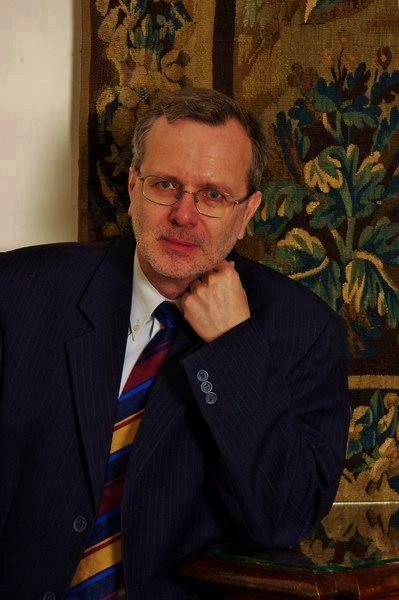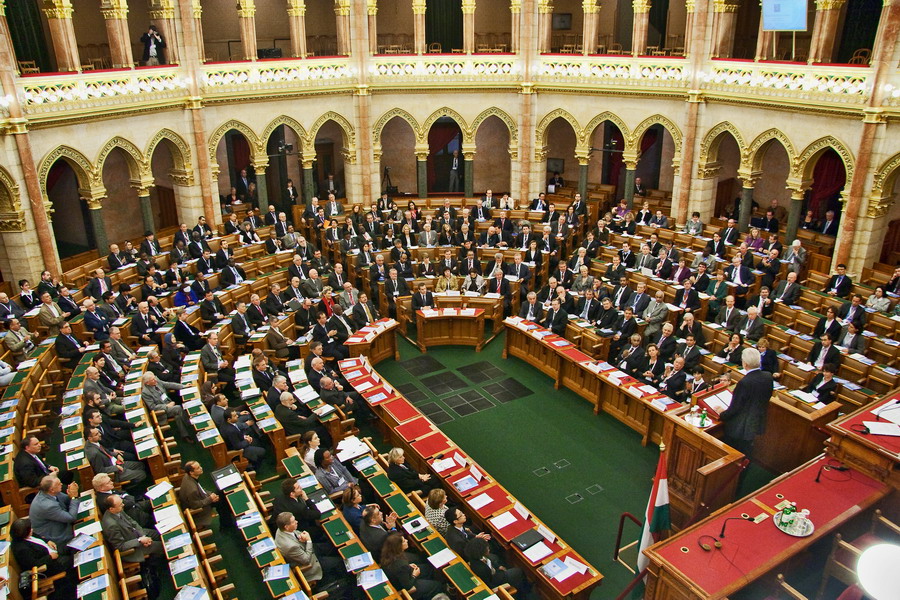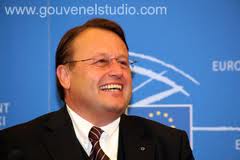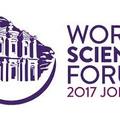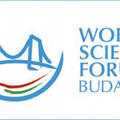World Science Forum 2011 Budapest - Day 3/1. - Parliamentary session
Chair: Balazs Gulyas Executive Director, World Science Forum and the founding director of the World Science Forum series.
Balázs Gulyás is a professor of neuroscience at the Karolinska Institute, Stockholm. He was born in Budapest, Hungary, and pursued his first university studies in medicine and physics at the universities Semmelweis and Eötvös Loránd in Budapest, followed by university studies in philosophy, law and neurobiology at the Catholic University of Leuven, Belgium, where he obtained a PhD in neurosciences. He made his post-doctoral training at the Karolinska Institute in Stockholm and at the University of Oxford. Since the late eighties he has been affiliated with Stockholm’s Karolinska Institute here his main field of activity is related tofunctional and molecular neuroimaging. Gulyás has published nine books and over 200 papers in scientific journals in the fields of neurosciences. He is a member of the Academia Europaea, the Hungarian Academy of Sciences and the Royal Belgian Academy of Medical Sciences.
2009. World Science Forum video - Conclusions
Tibor Navracsics Deputy Prime Minister, Minister of Public Administration and Justice
Lawyer and political scientist, head of parliamentary group of the Fidesz - Hungarian Civic Union political party.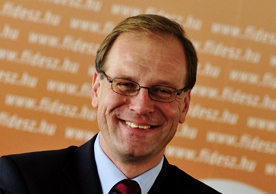 Navracsics’s field of research are comparative politics and internal politics in the European Union. Because he speaks both Serbian and Croatian, he wrote a number of analyses regarding the former Yugoslavia.
Navracsics’s field of research are comparative politics and internal politics in the European Union. Because he speaks both Serbian and Croatian, he wrote a number of analyses regarding the former Yugoslavia.
He was elected „Teacher of the Year 2007” by the students of ELTE.
Navracsics Tibor az együttműködés fontosságát állította előadásának középpontjába: ahhoz, hogy a nemzeti, régiós és globális kihívásoknak megfeleljünk, a kutatás és az ipar, a befektetők és a társadalmi közösség összefogására van szükség. Magyarország célul tűzte ki, hogy 2020-ra a nemzeti jövedelem (GDP) 1,8%-át fordítja kutatás-fejlesztésre úgy, hogy megnöveli a vállalati R&D részesedést. Középtávon, az évtized közepére a nemzeti össztermék 1,5%-át kívánják kutatás-fejlesztésre fordítani. A kormányzat tervei közt is szerepel a tehetségek itthon tartása azáltal, hogy mind anyagilag, mind szellemileg inspiráló közeget teremtenek számukra. E célkitűzés egyik sikeres példája az Akadémia által 2009-ben elindított Lendület program.
A miniszterelnök-helyettes kifejezte, hogy nemzetközi szinten Magyarország gyümölcsöző tudományos kapcsolatokat kíván kiépíteni az új tudományos és technológiai "szuperhatalmakkal", mint Brazília, Kína, India, Dél-Korea és Szingapúr. Mindezek érdekében fejleszteni kell a tudástranszfert, továbbá kialakítani az állami- és a magánbefektetések megfelelő egyensúlyát.
Paul Rübig, Chairman, STOA - Science and Technology Options Assessment - European Parliament
Austrian politician and Member of the European Parliament with the Austrian People's Party, Member of the Bureau of the European People's Party and sits on the European Parliament's Committee on Industry, Research and Energy.
He is a substitute for the Committee on Budgets, a member of the Delegation for relations with Switzerland, Iceland and Norway and to the European Economic Area (EEA) Joint Parliamentary Committee and a substitute for the Delegation for relations with Australia and New Zealand.
Ki tudná a tudósoknál jobban, milyen kihívások előtt állunk? ─ tette fel a kérdést Paul Rübig, az Európai Parlament (EP) tudományos és technológiai bizottságának (STOA) elnöke. A tudománypolitikus szerint a ma tudósai számára az egyik legfontosabb kihívás az energiatermelés új módozatainak innovatív kidolgozása. A STOA ezen kívül több területen is aktív: foglalkozik például a társadalmi hálózatok, a szerzői jogok kérdésével, illetve az öregedés kutatásával. "A tudás hatalom, a hatalom pedig biztonságot ad."
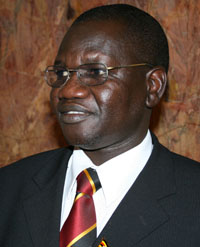
Patrick Amuriat Oboi, a Member of Parliament in Uganda with the Forum for Democratic Change for the Kumi County - Kumi District.
He specializes in science innovation and technology, human rights advocacy, and conflict resolution. As a member of The Committee on Science and Technology, Hon. Amuriat overviews the strategic plans concerning science and technology for national development. He is also a member of The Committee on Physical Infrastructure with previous experience as the Technical Advisor to Care International, the District Executive Engineer for Kumi District, and the Technical Manager for Godom Builders.
Video: The Parliament of Uganda Experience
Patrick Oboi arra hívta fel a figyelmet, hogy a tudomány képviselőinek proaktívan kell fogadniuk a világ változásait. Az akadémikusoknak együtt kell működniük az iparral, a befektetőknek a civil szféra képviselőivel és mindnyájuknak a politikai döntéshozókkal, mivel az összefogás és a tudás megosztása közös érdek.
Ulla Burchardt  Chair, Committee on Education, Research and Technology Assessment, Bundestag, Germany
Chair, Committee on Education, Research and Technology Assessment, Bundestag, Germany
Politician and member of the SPD (Social Democratic Party of Germany)
World Science Forum 2011 abstract:
Science today is a globalized system. Finally it becomes acknowledged that scientific curiosity and scientific rigour are universal; academic freedom therefore is a universal objective and there is a connection between academic freedom and political freedom. However, globalized science exerts pressure and limitations to academic freedom in developing countries, because ‘scientific quality’ is defined in Europe and America.
If we want to achieve efficient and effective science systems everywhere to address the dramatic global challenges of today, we need to allow researchers in developing countries to define their research priorities and their research methods themselves. To formulate answers to global challenges which are effective in the long-term, e.g. more effective research capacity in developing countries, is an important task for parliaments.
World Science Forum 2011 absztrakt:
A tudomány ma egy globalizált rendszer. Végre elismerik, hogy a tudományos kíváncsiság és a tudományos szigor egyetemes; a tudósi szabadság ezért univerzális cél, és kapcsolat áll fenn a tudósi és a politikai szabadság között. Ugyanakkor a globalizált tudomány nyomást gyakorol a tudósi szabadságra, és korlátokat állít elé a fejlődő országokban, minthogy a „tudományos minőséget” Európában és Amerikában szabják meg. Ha mindenhol hatékony tudomány-struktúrát akarunk megvalósítani - hogy a mai drámai globális kihívásoknak megfeleljünk -, akkor a fejlődő országok kutatói számára is lehetővé kell tennünk, hogy maguk határozzák meg kutatási prioritásaikat és módszereiket. Fontos feladat a parlamentek számára, hogy olyan, hosszú távon is hatékony válaszokat fogalmazzunk meg a globális kihívásokra, mint pl. a hatékonyabb kutatási kapacitás a fejlődő országokban.
A növekedés kulcsa - több más fontos tényező mellett - a tudományos szabadság, a tudáshoz való általános hozzáférés és a nemek kiegyenlített jelenléte. "Egyértelműen támogatjuk az UNESCO célkitűzéseit, ezért is döntöttünk úgy a német parlamentben, hogy jövő héten döntést hozunk a szervezet további támogatásáról" ─ mondta az oktatásért, kutatásért és technológiai fejlődésért felelős bizottság elnöke.
Videos: Mobilizing Policy for Science/Science for Policy to address global challenges
Remarks on parliaments's responsibility
World Science Forum 2007
Rémi Barré 
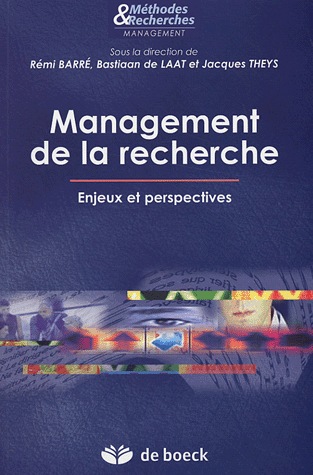 Conservatoire National des Arts et Métiers Recherche (CNAM), France
Conservatoire National des Arts et Métiers Recherche (CNAM), France
Rémi Barré est professeur de politique scientifique au CNAM et directeur du département des études et de la prospective à la Direction générale de la recherche et de l’innovation du Ministère de l’enseignement supérieur et de la Recherche.
Il participe aux travaux du Groupe Futuris, de l’Association nationale pour la recherche et la technologie (ANRT). De 1990 à 2001 il a été directeur de l’Observatoire des sciences et des techniques (OST), institution chargée de la production des indicateurs de la science et de la technologie pour la France et, de 2004 à 2006, directeur de l’unité de prospective de l’Institut National de la Recherche Agronomique (INRA).
Video: Rémi Barre - Franco-British Workshop on Responsible Innovation - 2011
"Jelen helyzetben nemcsak az előnyök, de az egyes társadalmi csoportok közötti feszültségek is tartóssá válhatnak, ha nem vesszük figyelembe, hogy a kollektív döntéshozatal kérdése, követelése sokszor háttérbe szorul" ─ figyelmeztetett a francia kutató, Rémi Barré (CNAM Egyetem). Hangsúlyozta, hogy a tudományos eredmények az emberiség közös kincsei. A tudomány közös értékének fogalmaival, a közösségiséggel és egyetemességgel utalt arra, hogy a tudós mindenki érdekében kutat, tehát mindenki számára hozzáférést kell biztosítania az eredményeihez.
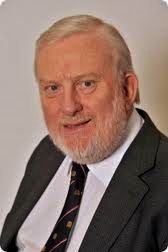
Andrew Miller Chairman, Science and Technology Committee, House of Commons UK
Mr Miller was educated in Malta, Hampshire and at the London School of Economics, and holds a Diploma in Industrial Relations.
His began his career as a technician in geology at the Portsmouth Polytechnic, where he developed an XRF and XRD laboratory. He then moved into industrial relations and was an official for the Manufacturing, Science and Finance Union where he represented many scientists and engineers working in leading companies from 1977 until he was elected to Parliament in 1992.
As Labour Member of Parliament for Ellesmere Port and Neston, Mr Miller represents just under 70,000 electors. As well as dealing with numerous widely diverse issues at constituency level, Mr Miller is also Chair of the Science and Technology Select Committee; Chair of the Parliamentary & Scientific Committee; Vice-Chair of the Parliamentary Information Technology Committee (PITCOM) and a Member of the Liaison Committee. Between 1992 and 2001 he was also a member of the House of Commons Information Committee and has served on many other parliamentary committees.
Mr Miller was a Member of the First Steps Team working with the Foreign Office to promote relations with EU and prospective EU member states with specific responsibility for Hungary and Malta and his liaison work with the two countries continues today.
His particular political interests include Communications and Information Technology; Regional Economy; Science and Technology; the Environment and Industry.
Mr Miller is the author of: 'Information and Communication Technology Tools for Better Government' a paper commissioned by the Cabinet Office Minister in preparation for the Modernising Government White Paper in 1998.
Mr Miller also presents widely on Information Technology, E-working and E-Government.
Video: Andrew Miller MP on science practicals inquiry - 2011.
.jpg)



